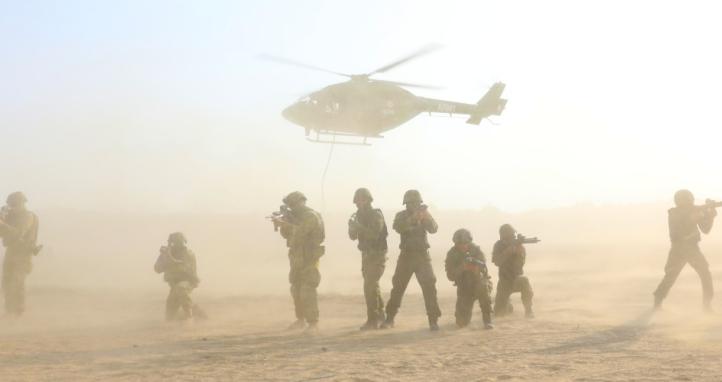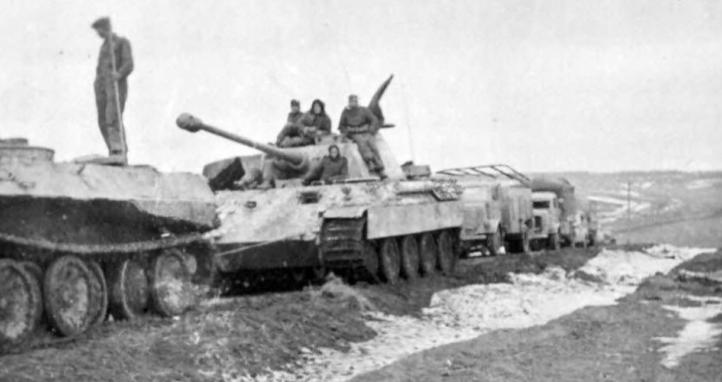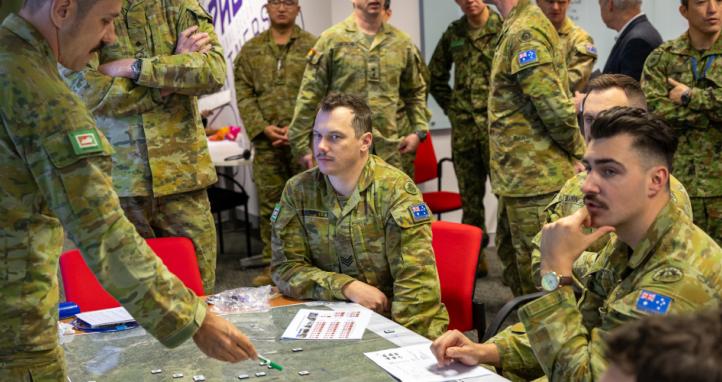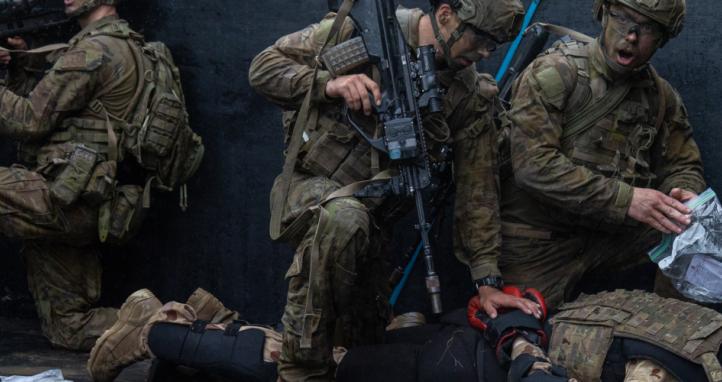Facts and figures
The 'Know Your Region' series is designed to support unit and individual professional military education on the South East Asian region. It's important for all serving members of our military to have a foundational knowledge of the countries and issues in the Indo-Pacific.
PNG – THE BOUGAINVILLE RELATIONSHIP
On this page:
- Bougainville history
- The Sandline Affair
- Move to autonomy and independence
Bougainville history
Bougainville is an autonomous island east of the main island of PNG. Significant mineral deposits were located there, predominantly gold, in the 1930s, when the island was under Australian administration. The island was the scene of significant fighting between Allied and Japanese forces during the Second World War. On the cessation of hostilities, the island reverted to Australian control. Significant copper deposits were discovered in the 1960s, during which Australian-controlled companies developed large mine sites. The Panguna mine became the world’s largest open cut mine.
Tensions soon occurred as a result of the large scale importation of workers, both from other parts of PNG (most of whom were ethnically different to the Bougainvilleans), as well as from Australia and abroad. Even before PNG independence was achieved in 1975, there had been calls internally for Bougainville to declare its own independence. The locals were against what they perceived as their natural environment being exploited, with very little of the profits remaining on the island. By the late 1980s, localised violence turned into a full blown civil war between the PNG government forces, and the local Bougainville Revolutionary Army (BRA). Over a decade, frequent conflict occurred between the PNGDF, the Royal PNG Constabulary, and the BRA. Concerns within Australia were based on the fact that Australian-provided helicopters were being used in contravention to the purpose stipulated when they were donated. However, Australia continued to support the PNGDF’s capacity building efforts, with the full knowledge that this equipment and training would be utilised in operations against the BRA.
By the mid-1990s, the BRA had become a disorganised entity of several organisations, mostly with different ethnic affiliations and agendas. However, continued attacks on the copper and gold mines forced the PNG government to decide to take decisive action in order to end the conflict.
The Sandline Affair
In March 1997, citing a failure to resolve the issue through diplomatic means, the incumbent PM of PNG, Sir Julius Chan, decided to resolve the Bougainville situation once and for all. The PNG Defence Minister at the time, Mathias Ijape, requested support from Australia and New Zealand for a military assault on the island; however, this was denied. Ijape proceeded to seek assistance abroad in the form of a mercenary company, Sandline International, which was led by Tim Spicer, a former Commanding Officer of the Scots Guards. This move was opposed by the head of the PNGDF, Jerry Singirok, whose planned assault on the island failed miserably after six days of operations.
Subverting usual government practices, Chan proceeded to engage with Sandline, providing funding for the mercenaries from other government departments. Once the deal became public, Australia attempted to convince Chan not to proceed, threatening to remove financial aid to the country. Noting increased public and PNGDF opposition, Chan sacked Singirok. Other senior PNGDF officers then arrested the Sandline team, deporting them from the country. The security situation started spiralling out of control, with PNGDF soldiers threatening a full revolt. On 25 March, Chan sacked Ijape, and then resigned himself. Singirok was reappointed as head of the PNGDF.
Move to autonomy and independence
After the Panguna mine closed in 1989, several years of further discussions seeking peace occurred, with a deal reached in 2001 leading to the creation of the Autonomous Bougainville Government. Part of this agreement dictated that a referendum on Bougainville’s political status would need to be held by 2020. In late 2019, a non-binding referendum on Bougainville’s independence saw over 97% of voters call for independence. However, the PNG government has not indicated any intentions to support this.
For further information on the PNG and Bougainville relationship topic, see the resources below:
- Podcasts
- Articles and sites
Discussion question
- Bougainville is currently an autonomous region within PNG, yet there are still calls from within for full independence. What factors might result in renewed conflict over this island? What part should regional nations play in this?
Know your region
Know Your Region series gives you a shortcut to understanding other nations in the Indo-Pacific region.









